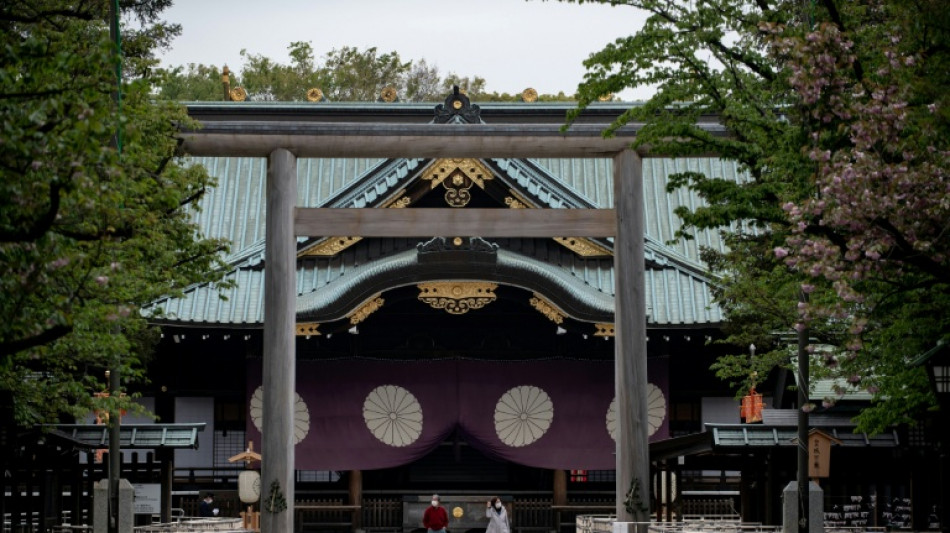
RIO
-0.7100


The new head of Japan's ruling party Sanae Takaichi avoided visiting a controversial Tokyo war shrine on Friday, as political wrangling intensifies over her bid to become prime minister.
Takaichi became Liberal Democratic Party (LDP) leader on October 4 but her aim to become Japan's first woman prime minister was derailed by the collapse of the ruling coalition last week.
The LDP is now in talks about forming a different alliance, boosting Takaichi's chances of becoming premier in a parliamentary vote that media reports said will likely happen on Tuesday.
Past visits by top leaders to Yasukuni, which honours even convicted war criminals, have angered China and South Korea, and no Japanese premier has visited since 2013.
Takaichi, seen as an arch-conservative and China hawk from the right of the LDP, has visited in the past, including as a government minister.
But on Friday, on the opening day of an autumn festival, the 64-year-old sent an offering and reports said she was likely to refrain from visiting in order not to upset Japan's neighbours.
The last visit by a prime minister was in 2013 by the late Shinzo Abe, who was Takaichi's mentor. His three successors including outgoing premier Shigeru Ishiba have stayed away.
- Trump visit -
The clock is ticking for Takaichi to become Japan's fifth prime minister in as many years with US President Donald Trump due to visit Japan at the end of October.
Details of Washington and Tokyo's trade deal remain unresolved and Trump -- who had warm relations with Abe in his first term -- wants Japan to stop Russian energy imports and boost defence spending.
The LDP's coalition partner of 26 years, the Komeito party, pulled the plug on their alliance on October 10.
Komeito said that the LDP has failed to tighten rules on party funding following a damaging slush fund scandal involving dodgy payments of millions of dollars.
The LDP this week began talks on forming a new coalition with the Japan Innovation Party (JIP) instead.
The two parties would be two seats short of a majority but the alliance would still likely ensure that Takaichi succeeds in becoming premier.
This is because while Takaichi needs support from a majority of MPs to become premier, in a second-round two-way runoff she only needs more than the other person.
A spanner in the works could be if opposition parties agreed on a rival candidate but talks on this this week appeared to make little headway.
"I believe we made progress on advancing the sense of mutual trust because (LDP) President Takaichi and I were very close in many areas, including our views on current affairs and the political philosophy of the country," Fumitake Fujita, co-head of the JIP, said Thursday.
However, he also acknowledged that there were big policy differences in specific areas, such as a JIP proposal to ban corporate political donations.
More talks were due to take place on Friday.
K.Leung--ThChM